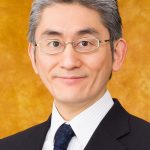Brain Science Inspired Life Support Research Center (BLSC)
Mission of the Research Center
The mission of Brain Science Inspired Life Support Research Center (BLSC) is to facilitate the innovative research and development of technologies useful for medical welfare in societies as well as for fostering researchers, engineers, and experts involved in and responsible for onsite activities, combining various research fields, such as brain science, informatics, medical engineering, ergonomics, robotics, and optics, based on UEC’s philosophy of “comprehensive communication sciences”.
Salutations from BLSC Director
In UEC, researchers are actively involved in various research fields, such as informatics, medical engineering, ergonomics, robotics, and optics. Recently, brain functions and engineering applications of signals from the brain have also been extensively studied. Needless to say, it is important that researchers in these different fields should come together and closely collaborate to develop technologies that facilitate medical and welfare treatments. It is also important to foster creative engineers with practical skills and who can work across different research fields. Thus, UEC launched BLSC in 2013.

KOIKE Takuji
Our objectives are, therefore, to establish integrated medical engineering that is really necessary for people’s peaceful lives and to encourage students to carry out research. In aging and aged societies, people whose cognitive and/or physical functions are impaired owing to aging are increasing in number. We believe that the mission of BLSC is to develop innovative technologies to complement and enhance the functions of people with such impairments.
To achieve this mission, BLSC organizes a network of researchers from different fields and fosters new types of engineers and health care providers who can develop and supply the necessary services through interdisciplinary collaborations, which will be useful for the welfare of disabled people. It also launches projects to develop equipment and methodologies that enable health care providers to respond rapidly to the practical needs of patients and medical doctors. Moreover, the recovery support and prosthesis for physical, perceptual, and cognitive functions of the elderly and the development of practical training methods are within the scope of education and research conducted by BLSC.


